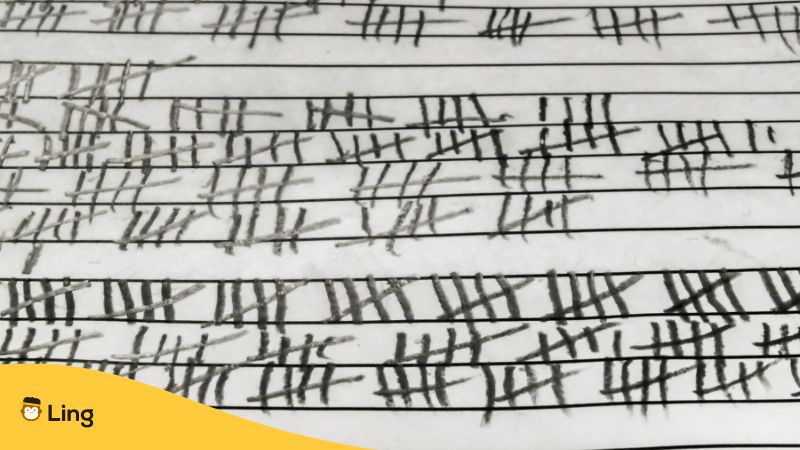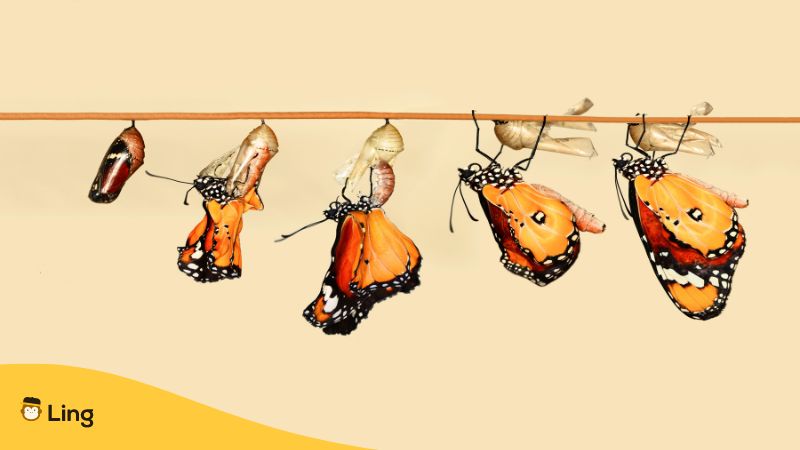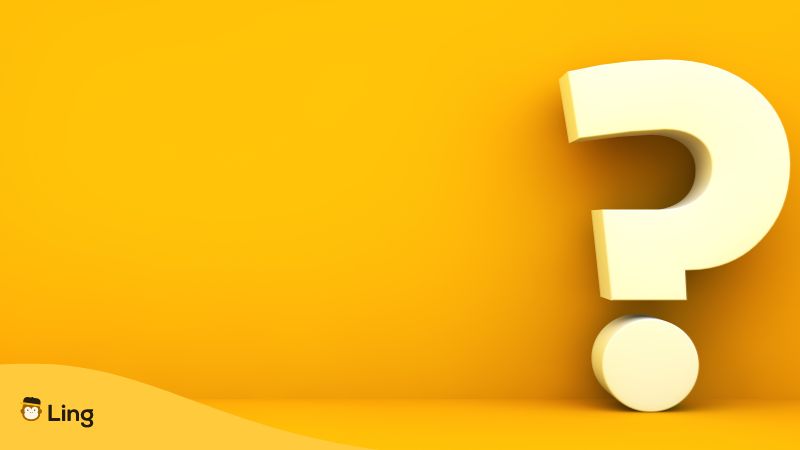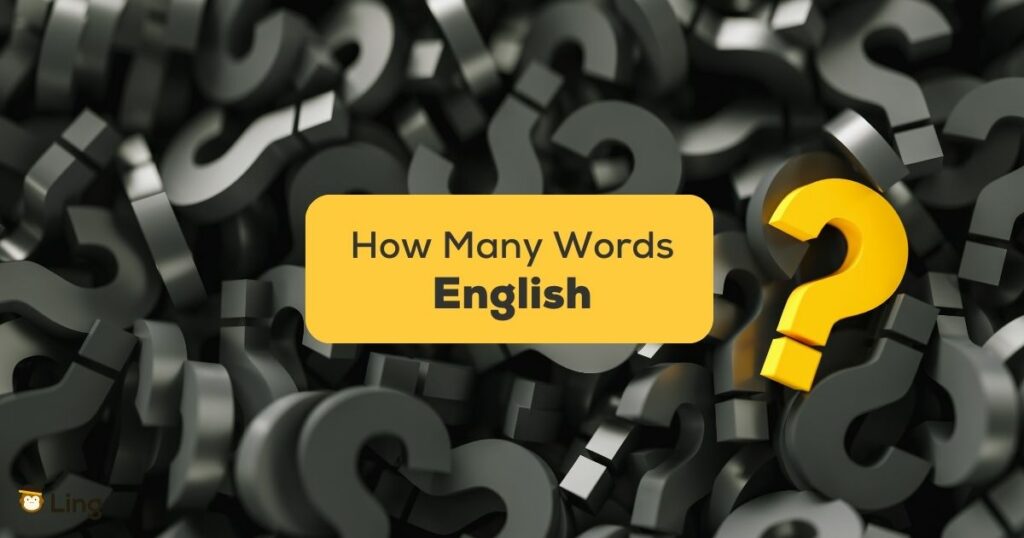Language is like a grand adventure, a journey that weaves through time, cultures, and human connections. Now, let’s zoom in on a thread that’s particularly vibrant: the English language. It’s a chameleon, expressing human thoughts in a multitude of ways. But wait, the question keeps word enthusiasts up at night: “How many words are in the English language?”
Counting words might sound like a straightforward task, but trust us, it’s like trying to count stars in the night sky—an enchanting challenge. Lexicographers, the word wizards, have their hands complete with cataloging and defining words. Yet, here’s the twist—what if a single word could wear multiple hats? Yep, some words are like shape-shifters, taking on various meanings depending on the context. Sneaky, right?
Buckle up as we embark on playful linguistic exploration and dive headfirst into the world of lexicography—a treasure hunt for all the words, if you will!
Defining The Boundaries Of Vocabulary
Unraveling word mysteries is like chasing fireflies in a word jungle. Each word is a colorful chameleon, shape-shifting through time and context. Defining a word can be straightforward, but in practice, it becomes a formidable challenge.

Lexicographical Databases And Counting Methods
Counting English words is no easy feat, but lexicographers get creative. They tally dictionary entries, tap into computational linguistics, and even gauge how many words people recognize and use. For instance, the Oxford English Dictionary flaunts around 171,476 full entries, while a Harvard-Google team in 2010 estimated 1,022,000 words, growing annually. Susie Dent suggests we grasp 40,000 words but actively use 20,000. Yet, remember, pinning down the exact number? A wordy challenge with fluctuating estimates. In other words, lexicographers do not have the exact count of the number of words in the English language.
Difference Between Words And Entries
Words are the fundamental units of language, each holding meaning and capable of being spoken or written. On the other hand, entries are specific terms listed in dictionaries, accompanied by definitions, pronunciations, and other relevant info. An entry might cover more than just a single word—it can include phrases, idioms, and even extended details like synonyms and examples. Remember, while a dictionary’s entry count varies, it doesn’t mirror the precise number of words in a language, making it a fascinating linguistic puzzle.

The Evolution Of English: Borrowings And Neologisms
Let us define our words first: borrowings are foreign words that came from other languages and joined into the English language, which carries its own historical and cultural influences as well. On the other hand, a neologism is a new word being created, such as slang words. With that, let us move on!
Borrowings, like “restaurant” from French or “karaoke” from Japanese, infuse foreign flavors into English. Neologisms, such as “brunch,” blending “breakfast” and “lunch,” capture new concepts. These linguistic gems reflect English’s adaptive nature, embracing diverse influences and inventing words to mirror changing times, technology, and culture. The language dances on the border of tradition and innovation, a dynamic reflection of human creativity and connectivity through history!
How Many Words Are In The English Language: Challenges
Counting and cataloging English words is like catching a wave: ever-expanding and elusive. Languages evolve, welcoming new words from around the globe, making it tough to pin down the exact count. While dictionaries tally entries, they don’t mirror the total words, as a single word can have multiple entries. Borrowed words and neologisms further blur the lines. With time, neologisms find their place, but counting remains a linguistic puzzle with varying estimates.
Perhaps there is a bit of a question in you: if there are newly developing words, then maybe there are words that become forgotten?
Words Lost And Found: Language’s Dynamic Nature
The answer is yes, and there is something more to it.
English, a linguistic chameleon, dances between past and present. It forgets words like “starrify” and “jargogle,” letting them slip into obscurity. Yet, it’s a language of surprises, breathing life into forgotten gems like “ambodexter” and “rouzy-bouzy.” They are being revived because it seems sensible to use them again. This ebb and flow of language preserves history while infusing vitality, showcasing English’s ever-evolving, dynamic spirit.
How Many Words Are In The English Language: The Verdict
Again, the English language is a tapestry woven with diverse threads. While estimates vary, the number of words hovers around hundreds of thousands in current use, potentially reaching up to a million when considering scientific terms, jargon, and more. In other words, there is no exact amount to be said to satisfy the question itself. This linguistic landscape showcases English’s richness, accommodating a multitude of expressions, and reflecting its ever-evolving nature.

How Many Words Should I Learn?
The other question that entails our primary one is how many words should we know in the English Language. A million words? It is certain that we won’t be able to use that much. Imagine grabbing sand on a beach—how much is that pocketful of sand? How much do we need?
The number of English vocabulary words you need to learn depends on your objectives. For comprehending everyday conversations, around 2,500 to 3,000 common words are sufficient. In fact, knowing that many words will make you understand 95% of daily conversations and texts! If that is your goal (i.e., to understand the majority), then focus on that number. If, however, your goal is something more amazing, aim for higher! Achieving fluency often entails learning around 10,000 words. Adapt your learning based on your goals and needs.
But how about learning more words by learning more languages?
Understand The World With Ling!
Ready to embark on a linguistic adventure like never before? Look no further than the Ling App—your ultimate passport to unlocking a world of languages! With its playful gamification, bite-sized lessons, and interactive quizzes, learning a new language has never been more exciting.
Whether you’re dreaming of mastering French, conquering Japanese, or delving into the depths of Korean, the Ling app has you covered with over 60 languages to choose from. Say goodbye to mundane memorization and hello to a vibrant journey filled with examples, audio immersion, and language mastery at your fingertips.
Don’t let language barriers hold you back; let Ling App be your linguistic sidekick, guiding you to fluency one fun-filled lesson at a time. Dare to dive into the diverse tapestry of languages? The Ling app is your ticket to linguistic triumph!
Try it now for FREE on Play Store or App Store!



































































